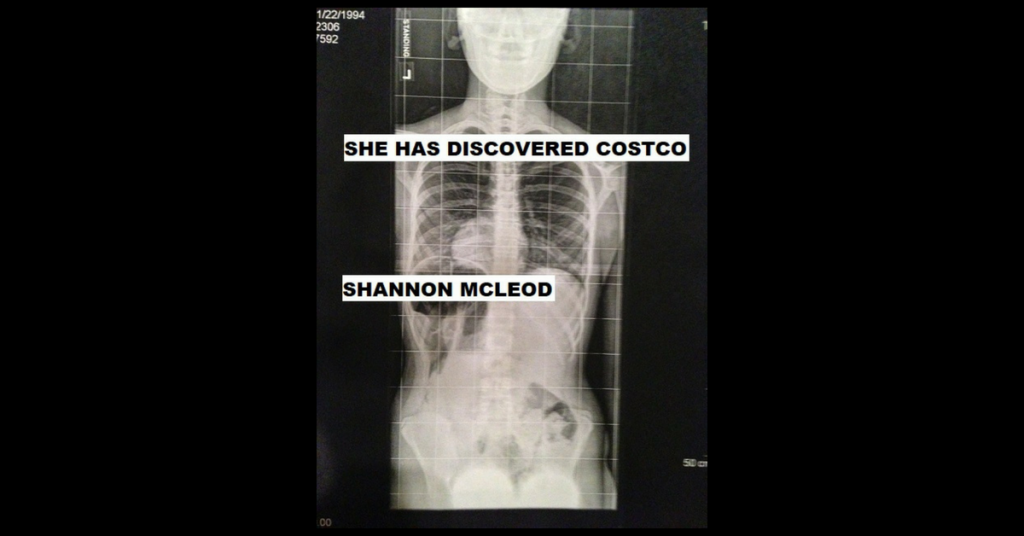
SHE HAS DISCOVERED COSTCO by Shannon McLeod
It’s Friday the thirteenth and day number four of your leave. You’re taking some time off work since “the incident.” You’re at the DMV because you’ve been meaning to go for months but you’re always working when it’s open. You’re afraid of seeing your students’ parents in the waiting area. You’re wearing the same Alf T-shirt and stretched-out underwear you’ve had on for the past two days. You’re pretty sure you stink. You glance at the people sitting beside you and determine they are too old or too young to have children in middle school. You may never return to…
